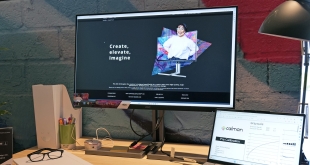If you've ever held an interest in the field of information technology, 2018 holds a number of hallmarks and predictions that make it a truly tantalising field to get into. There's never too late a time to begin, especially in an era where IT focuses are broadening beyond the realm of cybersecurity and software development thanks to newfound company interests in artificial intelligence and advanced analytics.
AI research, which occupied the imaginations of filmmakers and sci-fi aficionados since Isaac Asimov penned his predictions on the future of robotics and artificial intelligence, has finally reached a stage of development where private investment into furthering the field has reached a point of interest to those outside of Silicon Valley. Even nonprofits are showing surprisingly high salaries for researchers who have left the offices of Google and its contemporaries.
So while private companies poach the best and brightest as quickly as they leave universities, corporate AI funding has reached a point where it has begun creeping up to, if not outright overtaking, corporate spending in other areas of research and development. The most obvious applications are in the realm of automating basic tasks that require human intelligence as well as broader concepts such as self-driving vehicles. Various organisations offer courses on beginner AI information, but deeper learning requires a more focused approach.
Yet it's not just the realm of self-driving cars that has corporate interest. Business AI needs don't always reveal themselves to the customer or turn into a product to be directly marketed, but rather focus on the back-end of systems to process data and intelligently sort or utilise it. Advanced analyticskeeps pushing towards smarter data handling and better language processing, both of which require no small amount of constant design and tinkering. Taking on advanced fields require work and dedication, where certification in the vein of a Master of IT Leadership makes the field easier to navigate.
Retail spaces have a keep interest in the field of AI as a focus on non-human workforces begins to rise. Politically speaking, job focus shifting away from flesh and bone workers to robotic replacements brings up a whole host of interesting questions and scenarios, as may become the case with retail giants like Amazon who show a keen interest in moving towards shipping centres designed to be run entirely by AI-controlled workers and a small handful of engineers who maintain them.
Expect to see a trend of traditional fields of learning refocusing on the advancement of AI and the debugging and maintenance of robotic workers, along with human resource departments handling much smaller contingencies of workers to keep automated plants up and running. In a strange way, some traditional jobs may suddenly focus on a sort of human to AI resource department, where RMIT courses that broaden your field of studies outside of traditional educational avenues may come in handy.
In a non-AI department, the development of blockchain technology is a hot runner up when it comes to business IT research. The technological applications of the blockchain are still being explored with the hope of deploying more secure methods of information transfer and security verification through connected networks via the chain. It's not unreasonable to think information security could trend away from traditional security methods and instead move towards a more centralised system of verification, which requires a massive reworking of existing information systems. If security is in your interests, keep an eye open on blockchain developments for your own sake.
Perhaps most surprising is a swelling demand for data scientists. IBM reports a projected increase in need for data scientists to reach 2.7 million by 2020, which may come to outweigh the need for engineers within the next few years alone.
In short, 2018 is heading straight towards a future that invests heavily in AI and its disconnect from the human element, yet that very same disconnect requires manpower to push the boundaries of IT to a point where human intervention is less crucial. Our current expectations of the field may be totally obsolete within the next few decades and gambling on the status quo remaining stable is a risky affair.
 KitGuru KitGuru.net – Tech News | Hardware News | Hardware Reviews | IOS | Mobile | Gaming | Graphics Cards
KitGuru KitGuru.net – Tech News | Hardware News | Hardware Reviews | IOS | Mobile | Gaming | Graphics Cards


